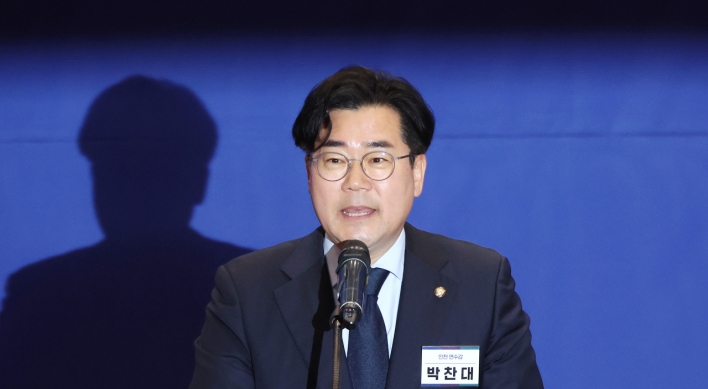Mathematical calculation requires the two sides of the brain to "talk" to each other, U.S. scientists say, and the stronger the talk, the better the outcome.
The research sheds light on the neural basis of human math abilities and suggests possible help for those who suffer from dyscalculia -- an inability to understand and manipulate numbers, the University of Texas at Dallas reported Wednesday.
Previous brain imaging studies have shown the right parietal region is primarily involved in basic quantity processing -- like how many socks are in a dresser drawer -- while the left parietal region is involved in more precise numerical operations like addition and subtraction.
Scientists had long wondered if the two hemispheres working together could improve math performance, and the new study suggests they can, researchers said.
The researchers analyzed brain scans of volunteers as they first performed a simple quantity estimation of objects and then performed simple arithmetic tasks.
While the researchers detected the usual left-right task management, they also found communication between the left and right hemispheres increased significantly during the arithmetic tasks compared with the number-counting task.
And people who exhibited the strongest connection between hemispheres were the fastest at solving the addition and subtraction problems.
Inefficient neural communication between the hemispheres may contribute to the impaired math abilities seen in dyscalculia, the numerical equivalent of dyslexia, the researchers said.
"If such a causal link exists," lead researcher Joonkoo Park said, "one very interesting avenue of research would be to develop training process to enhance parietal connectivity and to test whether they improve numerical competence."
Such training might help develop math ability in children and could also help older adults whose arithmetic skills begin to falter as a normal part of age-related cognitive decline, the researchers said. (UPI)
<관련 한글 기사>
'수학바보들' 천재로 만들어 드립니다
수학 계산에는 양쪽 뇌의 대화가 필요하며, 그 대화활동이 활발할수록 계산이 더 정확할 확률이 높다고 미국의 과학자들이 말했다.
이 연구는 인간의 계산능력을 담당하는 신경계를 밝히는데 실마리가 되며, 계산력 장애로 고생하는 사람에게 도움이 될 것으로 예상된다고 텍사스 대학이 수요일(현지시각) 밝혔다. 계산력 장애 (dyscalculia)는 수를 헤아리고 이해하는 능력이 부족한 것을 말한다.
종전의 뇌영상학 연구들에서는 우측 두정부가 간단하게 수를 세는 능력, 가령 옷장에 몇 켤레의 양말이 있는지 파악하는 것과 같은 문제에 관여하는 반면 좌측 두정부는 더하기와 빼기 등 더욱 정밀한 계산 능력을 담당하는 것으로 나타났다.
과학자들은 오랫동안 뇌의 두 부분이 함께 일하는 것이 수학 능력을 향상시키는지 연구해 왔는데 이 새로운 실험은 그 문제의 해답을 제공한 셈이다.
연구진은 지원자들에게 물건의 수를 세게 한 뒤 간단한 계산 문제를 풀게 했다.
연구 결과, 간단히 수를 세는 문제보다 계산 문제 특히 덧셈과 뺄셈 문제를 풀 때 우ㆍ좌뇌의 소통이 눈에 띄게 증가하는 것을 발견했다.
또한 연구진은 비능률적인 양뇌 신경계의 소통이 계산력 장애 또는 숫자 난독증으로 이어질 수 있다고 말했다.
이 연구를 인솔한 준쿠 박은 “이러한 인과관계가 존재한다면, 계산 능력의 향상과 두정부의 접속 가능성을 강화시킬 수 있는 훈련 과정을 만드는 것이 흥미로운 연구 분야가 될 것이다"라고 말했다.
이러한 훈련은 아동들의 수학 능력을 발달 시키고, 노화로 인해 계산 능력이 저하된 성인들에게도 도움이 될 것이라고 말했다.





![[AtoZ Korean Mind] Does your job define who you are? Should it?](http://res.heraldm.com/phpwas/restmb_idxmake.php?idx=644&simg=/content/image/2024/05/06/20240506050099_0.jpg&u=)












